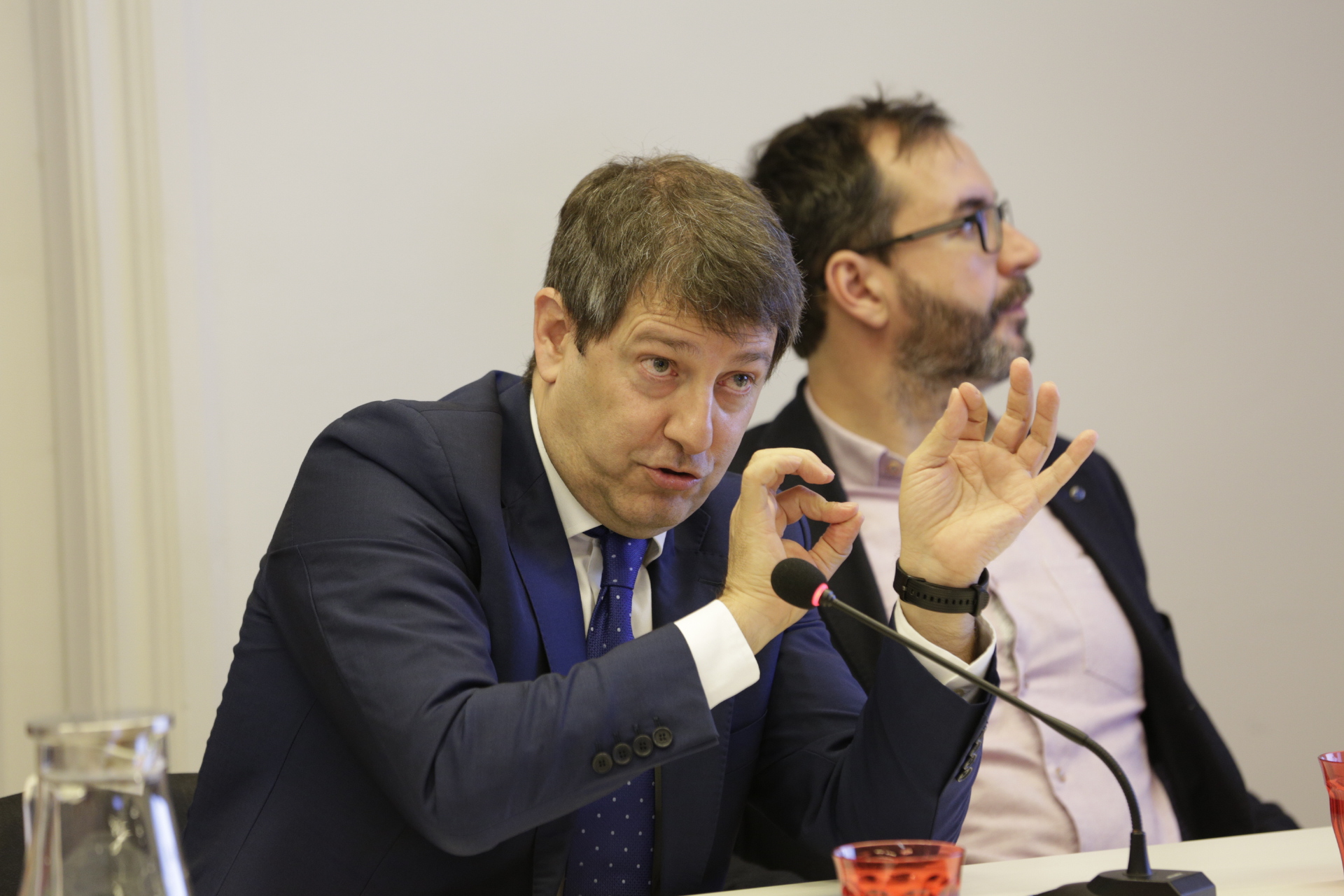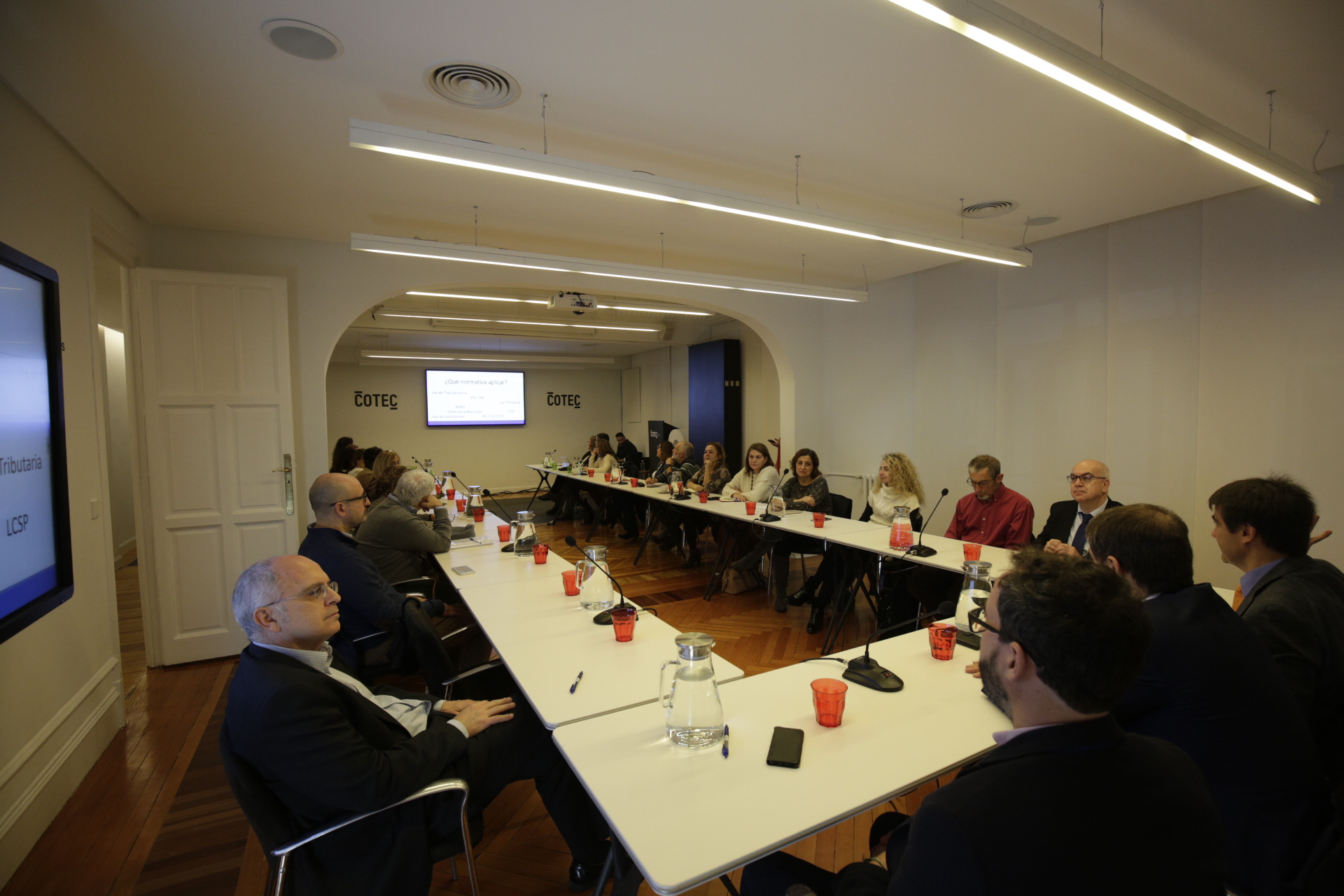Alberto Abella, member of the OpenInnova Research Group and collaborator of the Master in SAP Logistics Project Management of the URJC, presented the report 'Reuse of open data: an opportunity for Spain (II)' on November 14, 2019 at the Cotec Foundation: https://www.desidedatum.com/informe-opendata/

The report prepared by DesideDatum, with the collaboration of the Rey Juan Carlos University and the Polytechnic University of Valencia through the research project: Reusing data for business creation directed by professors Carmen de Pablos Heredero and Marta Ortiz de Urbina Criado, collects one of the update results of the project of the same name, selected in the 2017 call for Cotec's Open Innovation Program (PIA) http://informecotec.es/media/INFORME_REUTILIZACION-DE-DATOS.pdf. The report analyzes the extension, quality and use of public open data portals in Spain.
In this work, the open data portals in Spain have been identified, a sample of the data sets that are available and the services based on them have been analyzed. On the other hand, a questionnaire has been sent to those responsible for the portals to analyze some of the characteristics of the reuse of their data: the knowledge they have about the reuse of their data, the type of innovation that can be promoted with them , the activities to promote the use of your data, the services generated and the creation of value around the reuse of the data. Based on this information, an analysis of the opportunities, threats, strengths and weaknesses is presented, and some reflections have been included that can help improve public data management policies.
The executive summary includes the following reflections on the data reuse ecosystem in Spain:
- LACK OF KNOWLEDGE ABOUT THE USE OF DATA. Although Spain is well positioned in this sector, little progress has been made in developing mechanisms to collect information on reuse. This means that there is not much knowledge about the use that is given to the data and about the social and economic impact that they have.
- COORDINATION. As was observed in the 2017 report, no new mechanisms have been created to provide adequate coordination, both for the homogenization of published data, and for the standards of access to the different sources, with the exception of work carried out by the open data group of the Spanish Federation of Municipalities and provinces. At this point, the need for an entity that deals with this coordination at the national and European level continues to be identified.
- INTERNAL DATA GOVERNANCE. As was observed in the previous report, updating data is still a pending task. Update frequencies are still low and, in many cases, the update and publication processes are manual, this being a barrier to the general use of data.
- SUSTAINABILITY AND EMERGING BUSINESS MODELS. Defining sustainability as the economic viability of a service in the medium term, it is found that, in 2019, 30,6% compared to 52% in 2017 of the applications created did not have a sustainability mechanism. Furthermore, very few services had a business model (19,4% in 2019 compared to 25% in 2017).
- MISMATCH BETWEEN QUALITY OF PUBLISHED DATA AND SERVICES GENERATED. La Most of the published data, 74,8% in 2019, compared to 52% in 2017, does not contain any geographical reference and only 20,8% in 2019 compared to 16% in 2017, includes geographical coordinates associated with the posted content. In addition, their update frequencies are low, although they have improved since 2017 (at 45,6%, in 2019, their update frequency is greater than a week compared to 5%, in 2017). As was already observed in 2017, the services generated in recent years are also mostly geolocated (74,2% in 2019, compared to 72% in 2017) but the percentage of services with real-time information has been reduced (the 25,8%, in 2019 compared to 35%, in 2017).
- INTERNAL CONSUMPTION. It is observed that the largest consumers of the published data continue to be the public administrations themselves (56,1% are frequent or regular users), as well as the largest generators of services (61,2%). There has been no change in this trend and in recent years, the greatest improvements due to data reuse continue to occur for the public sector.
- REGULATORY BASIS. In Spain there is a good normative base regarding the regulation of the reuse of public sector data: adaptation of the European directive of 2013 (Law 18/2015), the Technical Standard of Interoperability of the Reuse of information resources (Resolution February 19, 2013) and other national, regional and local regulations. The adaptation to the recent revision of the directive represents a new challenge (EU 2019/1024). See annex 11.5.
- MATURITY OF THE PORTALS. The sector, in general, could be classified as advanced, although there has been a decline in its degree of maturity in recent years caused by the popularization of low-performance portals (apparent portals) for small cities.
- SOLID BASE. The national public sector as a promoter of the reuse of open data continues to be well positioned in the European and global context.
- UNSUITABLE TOOLS. Limited use of adequate tools continues, as only 25,2% use a Data Management System.
- LACK OF STANDARDIZATION OF DATA MODELS. The data published, as was the case in 2017, do not share data models. Therefore, it is still necessary to develop mechanisms that allow the homogenization of data so that they can be reused efficiently.




